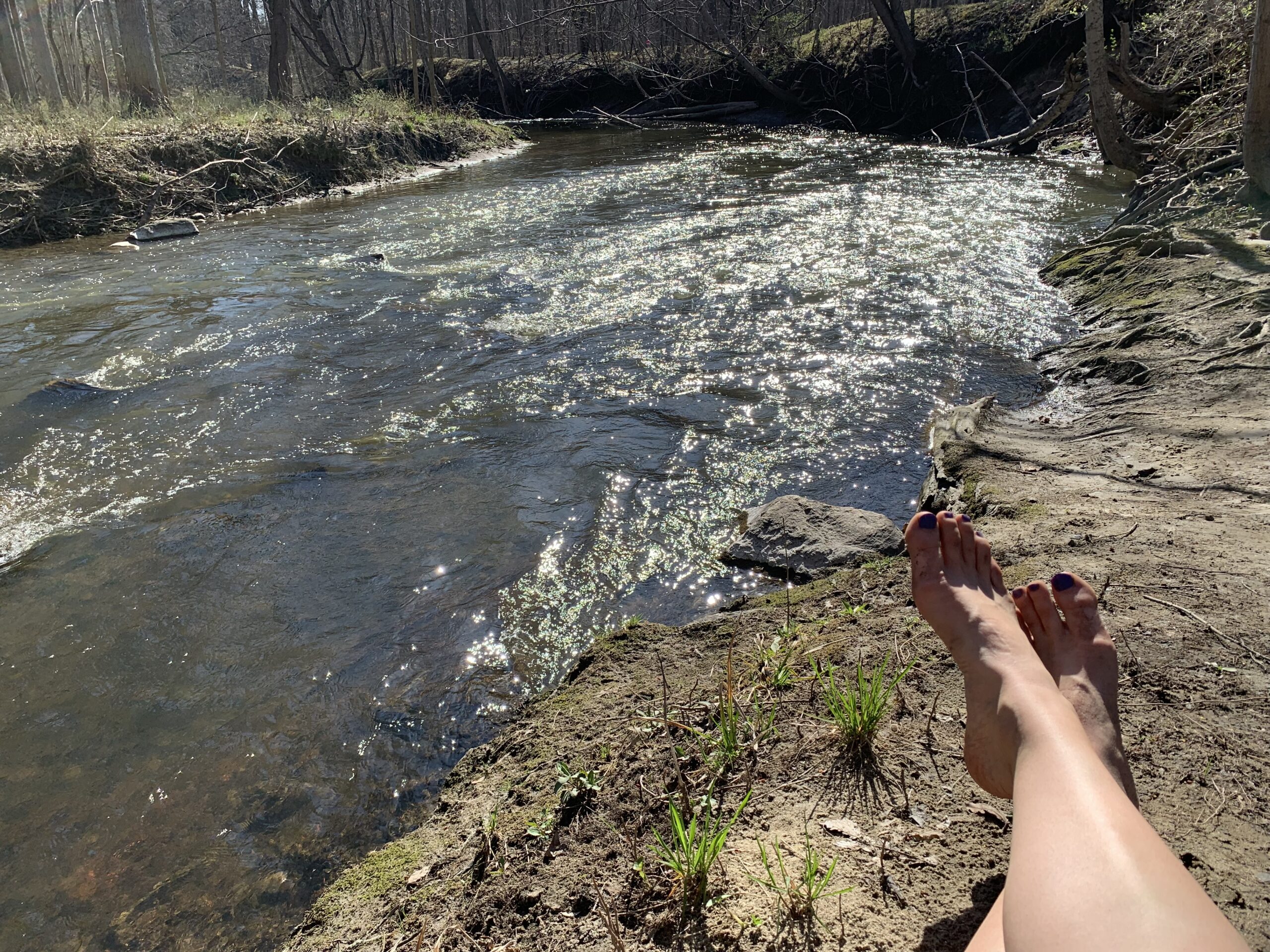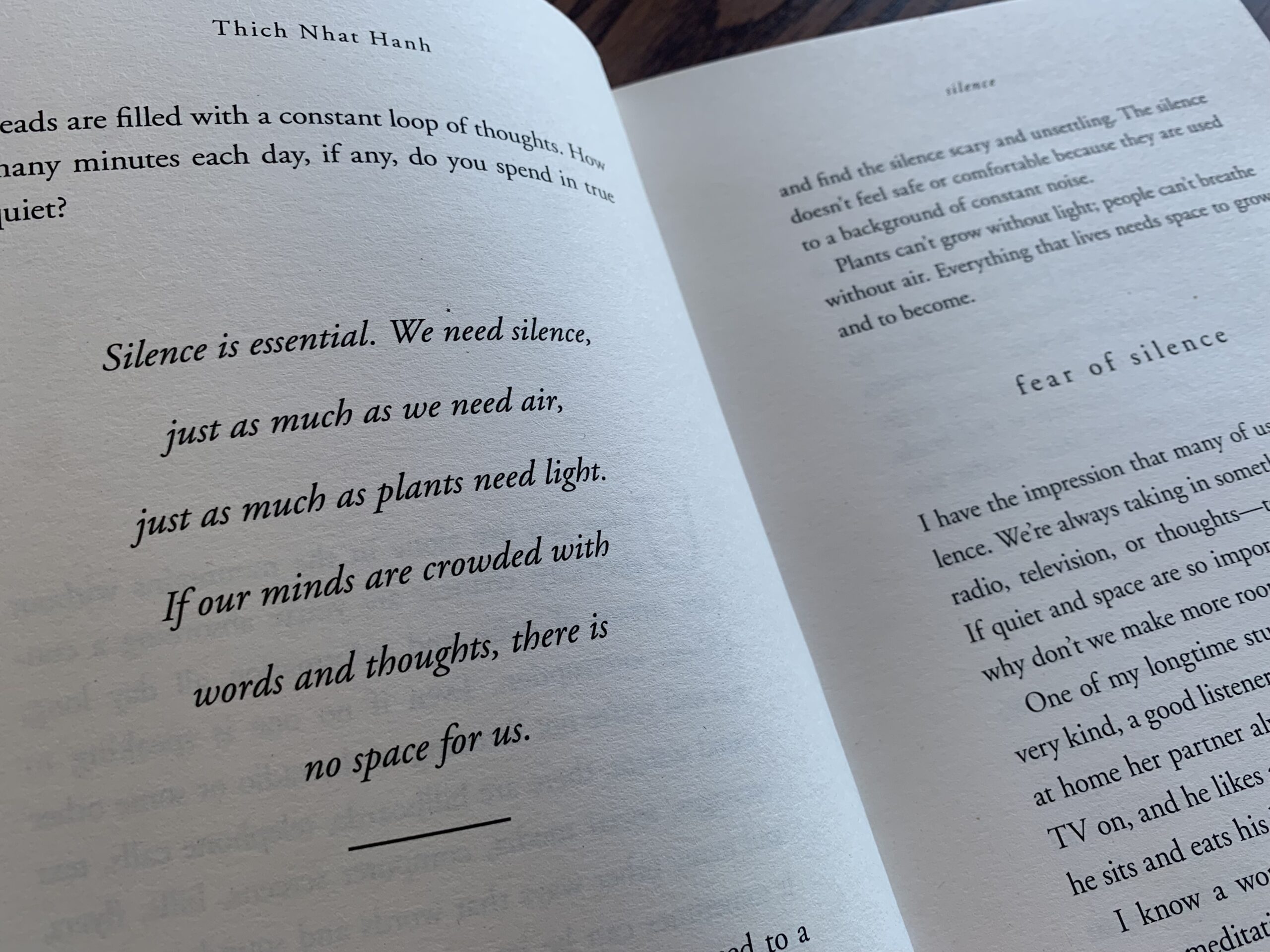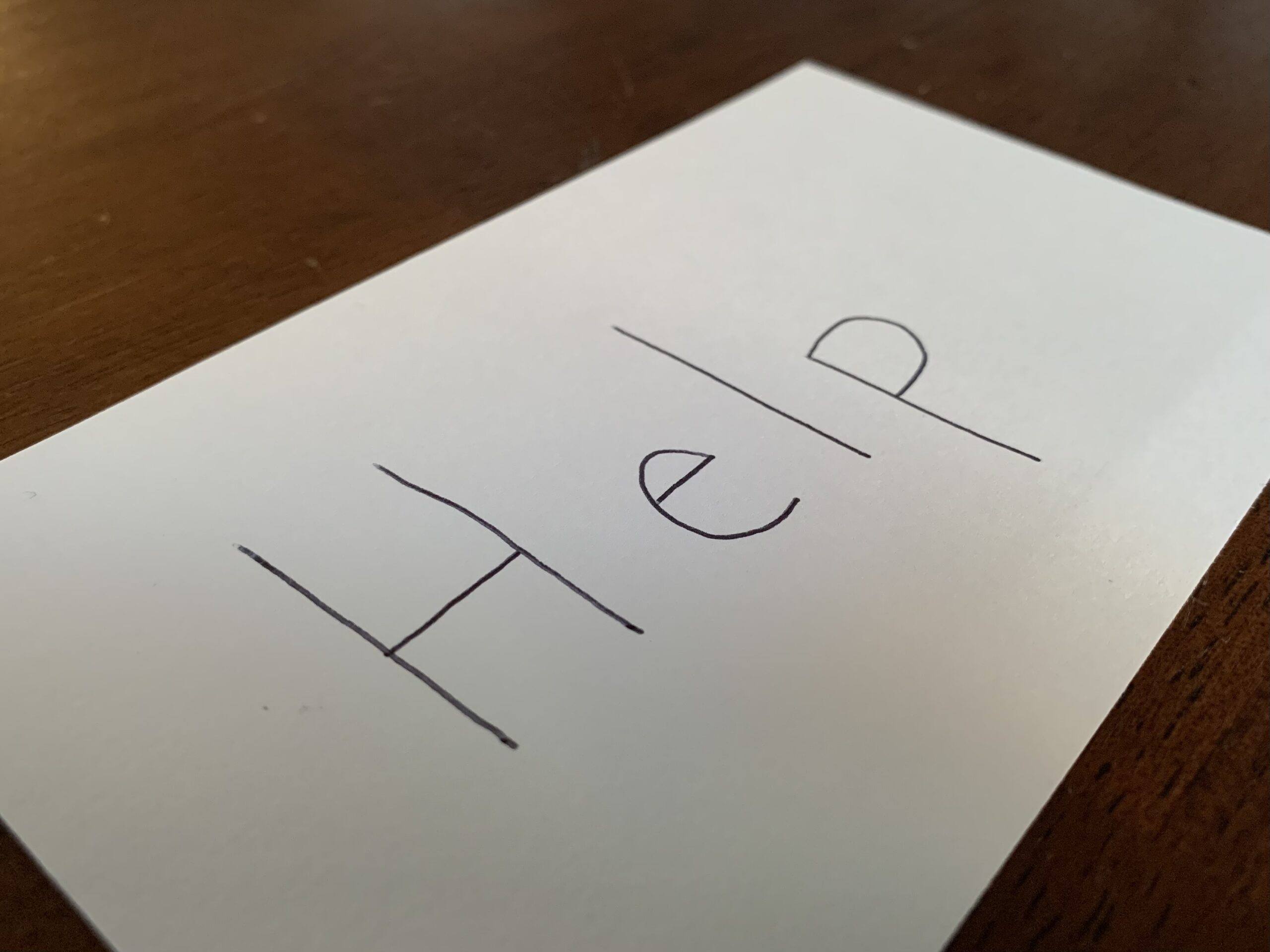As a highly sensitive person, I get overstimulated pretty easily.
Usually I feel flushed, a bit panicky and irritable. If I am in a public place, or with people I don’t know very well, I have a hard time making coherent conversation, and I can’t easily find my words. I also get clumsy, lose things, and have difficulty successfully completing a task from point A to Z. Sometimes my brain wants to shut down and dissociation completely, or I feel foggy, like I’m in a dream.
When overstimulation happens, it can be alarming and uncomfortable. I try to recognize what is happening as soon as possible. This way I can begin to take action in order to manage my symptoms.
Below you will find a list of 12 coping mechanisms I have learned to help me through these moments.
1. Say it: “I’m Overstimulated.”
I have found that if I simply say either to myself, or out loud to a trusted person, “I am overstimulated right now.” I can begin to take action without hesitation. Too many times I have sat in my overstimulation in an attempt to mask up or seem more “normal.”
What I have found over time is that pretending to be fine only causes me to panic more. Overstimulation doesn’t resolve itself unless action is taken or the source is removed. There is nothing wrong with you if you are overstimulated. Even if you are alone in finding yourself this way.
2. Determine the Source
If you can name the source of your overwhelm, you can begin to take action.
Over the Easter weekend here in Detroit, we finally saw some warm weather, and my family decided to spend the holiday outside. My eight-year-old, Norah, strongly associates outdoor fun with an upbeat playlist, so she brought the dot outside and asked Alexa to play her favorite pop hits.
After she scampered off to enjoy the sunshine, I found myself getting more and more irritable. I couldn’t sit still, was having trouble focusing on conversations, and I couldn’t control my urge to clean up.
And then it hit me…the music was too close and too loud. Easy fix! I moved the dot to the garage, and turned the volume down.
Of course sometimes it’s not this easy. Sometimes a combination of sources are to blame, but if you can eliminate even one, you will feel a little better.
3. You’re Overstimulated? Leave.
Sometimes your best option in an overstimulating situation is to leave. As an HSP, this might sound impossible. Maybe you struggle with laying out firm boundaries or practicing radical self care. Many HSPs do. But if you can leave, and you are overwhelmed, it is okay to give your beautiful heart what it needs and go.
I recognize there are situations when you can’t just pick up and high-tail it home. But you can sometimes step out for brain breaks. Go outside for a minute, or if that’s not an option, go to the bathroom.
My daughter, who has since been diagnosed with ADHD, spent half of her kindergarten year in the bathroom. She didn’t have a diagnosis then and had few available resources at that time, so my little girlfriend unapologetically took care of herself the best way she knew how.
Was the bathroom ideal? No. But her five-year-old brain found a calm space to take a break, and that’s what worked for her.
4. Ground Yourself
Try the 5, 4, 3, 2, 1 technique for grounding.
Name 5 things you can see, 4 things you can touch or feel, 3 things you hear, 2 things you smell, and 1 thing you taste.
This calming technique is especially helpful when dissociation is underway.
5. Box breathing
Box breathing is another anxiety relieving technique to try during overstimulation.
Studies show that regulating breathing can both help lower the stress hormone cortisol and activate the parasympathetic system, which is responsible for rest and digestion.
Box breathing is simple to understand because a box has four equal sides, and each part of the four-part breath sequence is four seconds long.
- Breathe in for 4 seconds.
- Hold your breath for 4 seconds.
- Breathe out for 4 seconds.
- Hold your breath again for 4 seconds.
Repeat each sequence until you feel yourself calm down.
6. Meditate
In a previous post, I detail the how-tos and benefits of meditation. Follow this link to learn more.
In situations of extreme stress, I will take a few deep breaths and close my eyes for a moment of mindfulness. I first take a few seconds to scan my body and notice how I feel. Then I begin to repeat a mantra in my head for as long as I can, given the situation.
Whenever possible, meditation is my go-to method of calming the nervous system.
7. Self-Touch
Supportive self-touch is another method you can use to activate the parasympathetic system when overstimulated.
Some suggestions are:
- Place your hands on your cheeks
- Hold both hands over your heart. Feel your heart beating. Notice the rise and fall of your chest as you breathe.
- Gently run your fingers along your arms.
- Give yourself a hug.
8. Shake Off Other People’s Energy
Sometimes when I am overstimulated, it is, in part, due to my HSP habit of absorbing the moods of the room. When I recognize an emotion isn’t my own, I take a moment to remember and re-claim the mood I was in before I arrived. Then I imagine there is a glass wall between me and the people around me.
9. Remember You Don’t have to be “on”
If you are in a social setting, and you feel pressure to perform a certain version of yourself, take a breath and let go of this idea. You can absolutely, truly be authentically you. If you feel that you can’t, take stock of your circle. You are perfect as you are right now.
10. Snuggle a Pet
Interacting with an animal has been shown to reduce cortisol, lower blood pressure, improve mood, and increase feelings of social support.
My family and I recently stayed with some of our favorite people on a trip to Texas. When the house became active with happy children, or I had indulged too much in caffeine, the first calming tool I reached for was their precious four-legged baby, Emma. She was always up for snuggles, and her sweet doggy presence was sometimes all I needed.
11. Try Earthing
Earthing refers to the regular practice of standing or walking barefoot in grass, soil, sand, pebbles or rocks.
According to this Washington Post article, humans evolved in direct contact with the Earth, and those who regularly immerse themselves in nature, have proven to enjoy better mental and physical health.
Further, when overstimulated, the experience of feeling your feet in contact with the natural world will ground you and allow you to return to the present.
12. Take a Shower/Wash your Face
I have an uncle who takes a shower twice a day. I’m not sure how great this is for the skin and hair, but the idea is, as he puts it, “One shower to wake up, and one to wash off the day.”
When I have found myself overwhelmed at home, I excuse myself for a shower. This allows me to close myself into a room, leave the source of stimulation behind, and feel the soothing, warm water on my face and body.
The truth is, when I get overstimulated at home, my mood is usually pretty awful. I use showers to “wash off the mood” rather than “the day,” like Uncle Doug.
As always, thank you for reading. If you are enjoying this content, please subscribe for more. You will be alerted each week by email of my latest article. By subscribing, you also support me and my mission to help spread the word about HSPs.




I’m enjoying this space! Well-written and the images are wonderful. I appreciate your work!
Thank you so much for reading and responding to my blog. I genuinely appreciate the support! I’m so glad you are enjoying the content. Best wishes to you!